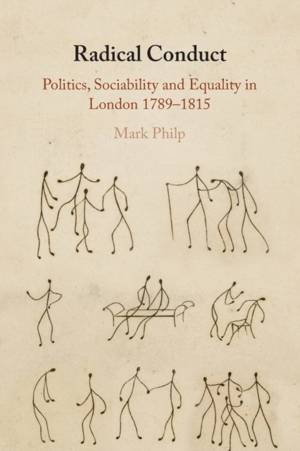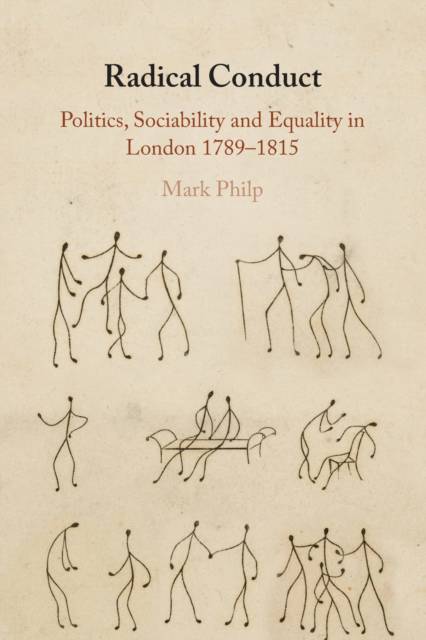
- Afhalen na 1 uur in een winkel met voorraad
- Gratis thuislevering in België vanaf € 30
- Ruim aanbod met 7 miljoen producten
- Afhalen na 1 uur in een winkel met voorraad
- Gratis thuislevering in België vanaf € 30
- Ruim aanbod met 7 miljoen producten
Zoeken
Radical Conduct
Politics, Sociability and Equality in London 1789-1815
Mark Philp
Paperback | Engels
€ 37,45
+ 74 punten
Omschrijving
While the French Revolution drew immense attention to French radicals and their ideas, London also played host to a radical intellectual culture. Drawing on both original material and a range of interdisciplinary insights, Radical Conduct transforms our understanding of the literary radicalism of London at the time of the French Revolution. It offers new accounts of people's understanding of and relationship to politics, their sense of the boundaries of privacy, their practices of sociability, friendship, gossip and discussion, the relations between radical men and women, and their location in a wider world of sound and movement in the period. It reveals a series of tensions between many radicals' deliberative practices and aspirations and the conventions and practices in which their behaviour remained embedded. Exploring these relationships and pressures reveals the fractured world of London society and politics, dramatically illuminating both the changing fortunes of radical men and women, and the intriguing uncertainties that drove some of the government's repressive policies.
Specificaties
Betrokkenen
- Auteur(s):
- Uitgeverij:
Inhoud
- Aantal bladzijden:
- 285
- Taal:
- Engels
Eigenschappen
- Productcode (EAN):
- 9781108820219
- Verschijningsdatum:
- 15/12/2022
- Uitvoering:
- Paperback
- Formaat:
- Trade paperback (VS)
- Afmetingen:
- 152 mm x 229 mm
- Gewicht:
- 385 g

Alleen bij Standaard Boekhandel
+ 74 punten op je klantenkaart van Standaard Boekhandel
Beoordelingen
We publiceren alleen reviews die voldoen aan de voorwaarden voor reviews. Bekijk onze voorwaarden voor reviews.











